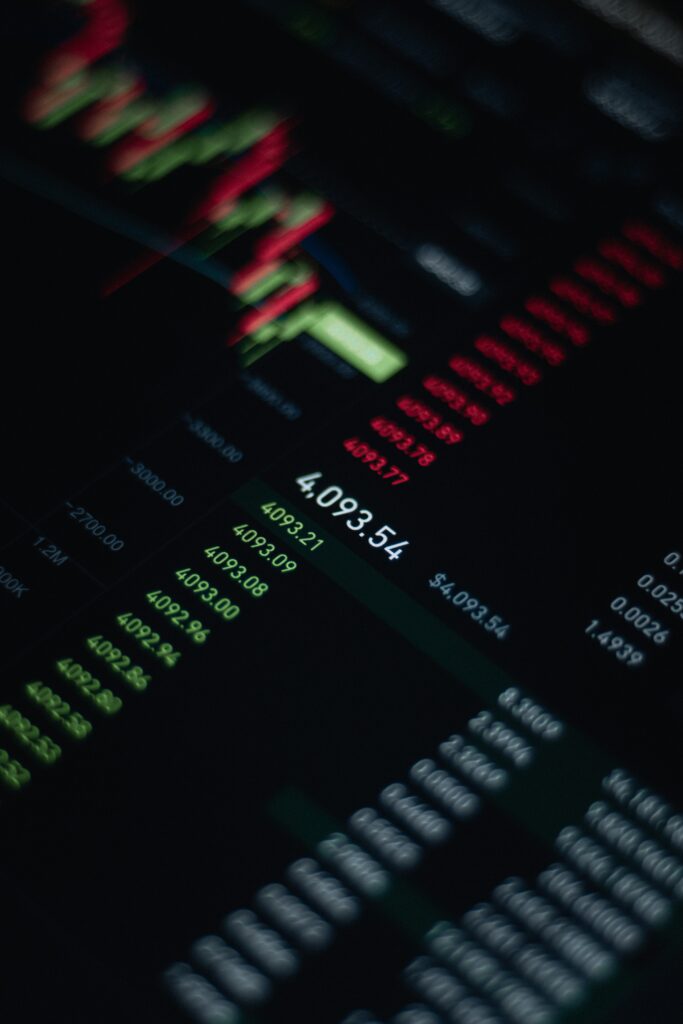In the increasingly digital world we live in, it is more important than ever to prioritize the safety and security of our online activities. And when it comes to the world of cryptocurrencies, where virtual assets and transactions are involved, the need for best practices becomes even more crucial. So, let’s explore what it takes to stay safe and secure in the crypto space, ensuring that your hard-earned assets are well-protected and your peace of mind remains intact.

Understanding the Crypto Space
The first step to staying safe and secure in the crypto space is to research and educate yourself. Take the time to understand the concepts and practices surrounding cryptocurrencies. Familiarize yourself with terms like blockchain, public and private keys, and wallet types. There are plenty of online resources, forums, and communities dedicated to crypto education. By gaining a solid understanding of the technology, you can make informed decisions and avoid common pitfalls.
Understand the Technology
To truly stay safe and secure in the crypto space, it is crucial to understand the underlying technology. Cryptocurrencies operate on a decentralized system known as blockchain. This technology ensures the transparency and integrity of transactions. Learn about the different types of cryptocurrencies and their unique properties. Understand how transactions are verified, recorded, and stored on the blockchain. By understanding the technology, you can effectively assess the security measures employed by different crypto platforms and make informed choices.
Recognize the Risks
While cryptocurrencies offer exciting opportunities, it is important to recognize and mitigate the risks associated with them. The crypto space is plagued by scams, thefts, and hacking attempts. Stay updated on the latest security breaches and vulnerabilities to understand the potential risks. Recognize that the decentralized nature of cryptocurrencies means there is no central authority to reverse fraudulent transactions or recover lost funds. By being aware of the risks, you can be more cautious and take necessary precautions to protect your cryptocurrencies.
Securing Your Cryptocurrencies
Once you have a solid understanding of the crypto space, it’s time to focus on securing your cryptocurrencies. Choosing secure wallets is essential. Wallets are software or hardware devices that store your public and private keys. Opt for wallets from reputable providers with a proven track record of security. Research the security features offered by the wallet, such as encryption and password protection.
Utilize cold storage for long-term cryptocurrency storage. Cold storage refers to keeping your private keys in offline devices or paper wallets. This keeps them safe from online threats, such as hacking attempts. Enable two-factor authentication (2FA) for an added layer of security. By requiring a second form of authentication, such as a code sent to your mobile device, you can prevent unauthorized access to your wallets.

Protecting Your Private Keys
Private keys are the most crucial aspect of securing your cryptocurrencies. Generate strong and unique private keys that are hard to guess or brute-force. Avoid using easily guessable information like birthdays or common passwords. Store your private keys securely in encrypted devices or offline storage. Consider using hardware wallets, which are specialized devices designed to securely store private keys offline. These devices provide an extra layer of protection as they are resistant to malware and hacking attempts.
Using Secure Exchanges
If you plan on trading or purchasing cryptocurrencies, it is important to use secure exchanges. Research and choose reputable exchanges with a track record of security and customer satisfaction. Look for features like two-factor authentication, withdrawal whitelisting, and cold storage of funds. These features provide additional layers of protection against unauthorized access and theft. Regularly review the exchange’s security policies and ensure they align with your security requirements.

Safeguarding Personal Information
Protecting your personal information is vital when it comes to staying safe in the crypto space. Be cautious of phishing attempts, where scammers try to trick you into revealing sensitive information. Be skeptical of unsolicited emails, messages, or phone calls asking for personal information or login credentials. Use secure internet connections when accessing crypto platforms. Avoid using public Wi-Fi networks or unsecured websites that may expose your information to potential threats.
Avoid sharing excessive personal information on online platforms and forums. The less information you share, the harder it will be for scammers to target you. Review the privacy policies of the crypto platforms you use to ensure they handle your personal information securely. By safeguarding your personal information, you can reduce the risks of identity theft and unauthorized access to your crypto accounts.
Managing Passwords and Authentication
One of the most basic yet essential practices for staying safe and secure in the crypto space is to create strong and unique passwords. Avoid using common passwords or reusing passwords across different platforms. Password managers can help generate complex passwords and securely store them. Utilize multi-factor authentication (MFA) whenever possible. MFA requires multiple forms of authentication, such as a password and a unique code sent to your mobile device. This significantly enhances the security of your crypto accounts.

Performing Secure Transactions
Before conducting any crypto transactions, it is important to verify the details. Double-check the addresses of the sender and recipient to ensure accuracy. Mistakenly sending funds to the wrong address can result in permanent loss. Be wary of suspicious links or QR codes that may redirect you to fraudulent websites. Phishing attacks often utilize such tactics to trick users into revealing their private keys or login credentials. Be cautious of any unexpected messages or requests and verify their legitimacy before taking any action.
Keeping Software and Devices Updated
Regularly updating the software of your crypto wallets and devices is crucial for maintaining security. Wallet software updates often include bug fixes, security patches, and performance enhancements. Install the latest security patches and updates for your operating system and other software. Hackers frequently exploit vulnerabilities found in outdated software versions. Additionally, ensure that you are using reliable and up-to-date devices. Older devices may lack the necessary security features to protect your cryptocurrencies effectively.

Being Mindful of Social Engineering Attacks
Social engineering attacks are manipulative tactics used by scammers to exploit human psychology. They often involve tricking individuals into revealing sensitive information or performing malicious actions. Recognize common social engineering techniques, such as impersonation, urgency, and emotional manipulation. Be cautious of unsolicited communication, whether it be emails, messages, or phone calls. Verify the authenticity of the sender before providing any personal or financial information. If in doubt, reach out to the official support channels or trusted sources to confirm the legitimacy of any requests.
Seeking Professional Advice and Audit
If you are unsure about any aspect of crypto security, it is always a good idea to seek professional advice. Consult experts and trusted sources in the crypto space to get accurate and reliable information. They can help you understand complex concepts, recommend secure practices, and guide you through any security concerns. Additionally, consider performing regular security audits of your crypto accounts and devices. This involves checking for any vulnerabilities, updating security measures, and ensuring compliance with best practices. Stay updated with the latest security news and advancements in the crypto space to stay vigilant and proactive in protecting your cryptocurrencies.
In conclusion, staying safe and secure in the crypto space requires a combination of knowledge, awareness, and proactive measures. Take the time to educate yourself about cryptocurrencies and the underlying technology. Recognize the potential risks and vulnerabilities and implement the best practices outlined in this article. By choosing secure wallets, protecting private keys, using secure exchanges, safeguarding personal information, managing passwords and authentication, performing secure transactions, keeping software and devices updated, being mindful of social engineering attacks, and seeking professional advice, you can enhance the security of your cryptocurrencies and minimize the risks of theft or loss. Remember, the crypto space is ever-evolving, so stay updated, stay vigilant, and always prioritize the safety of your cryptocurrencies.

